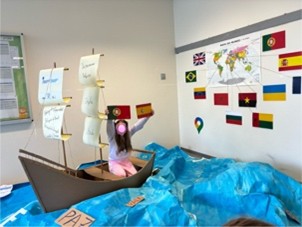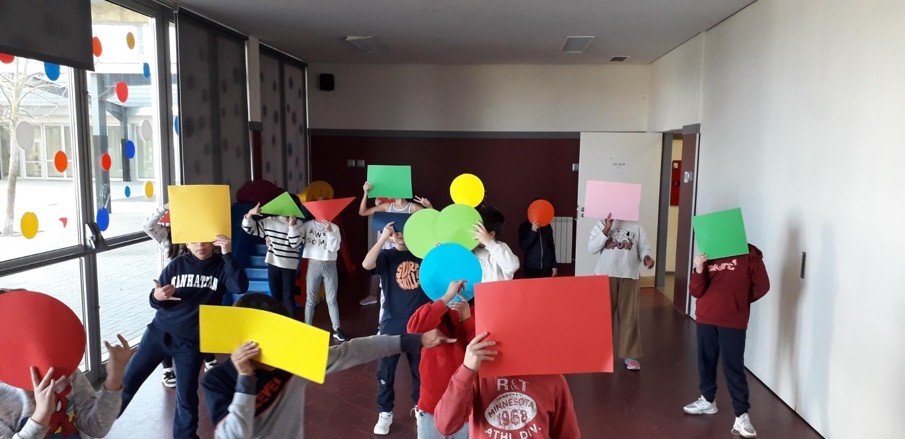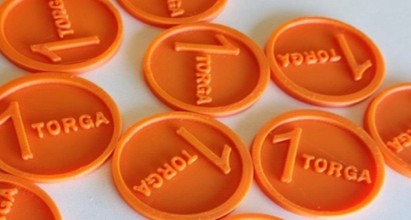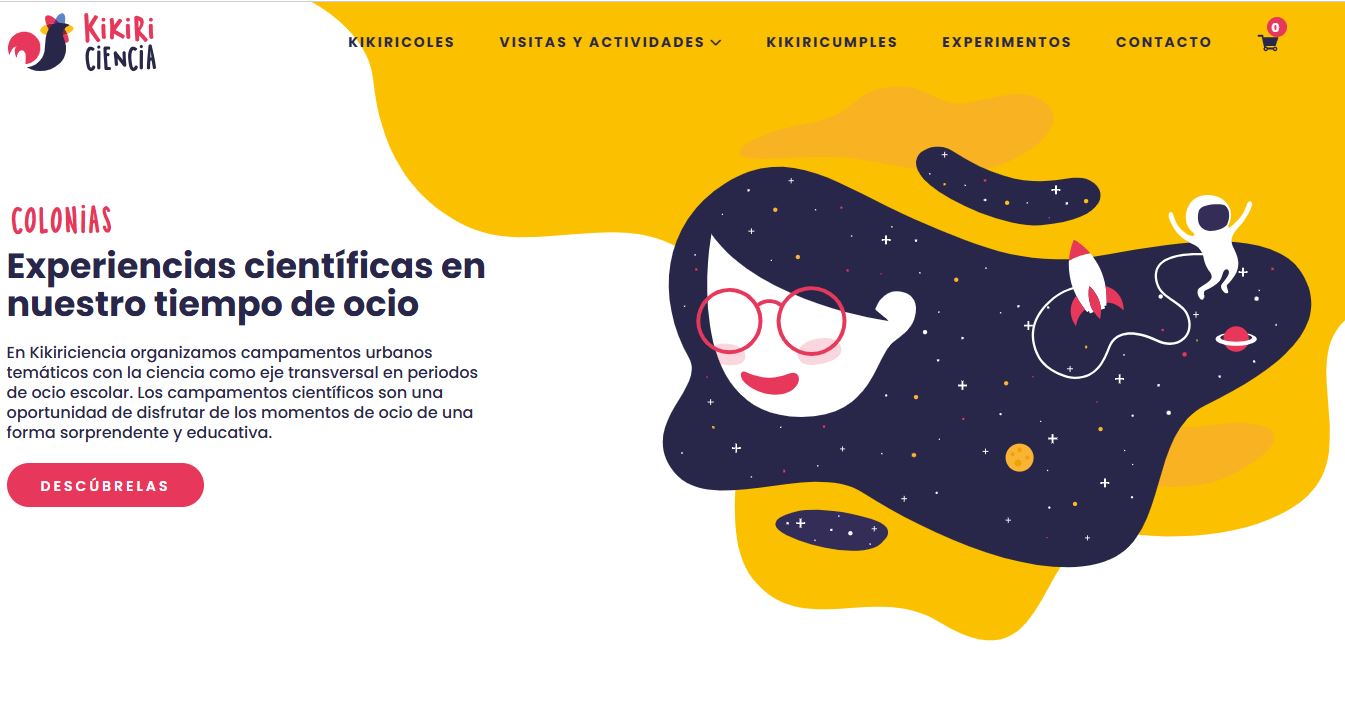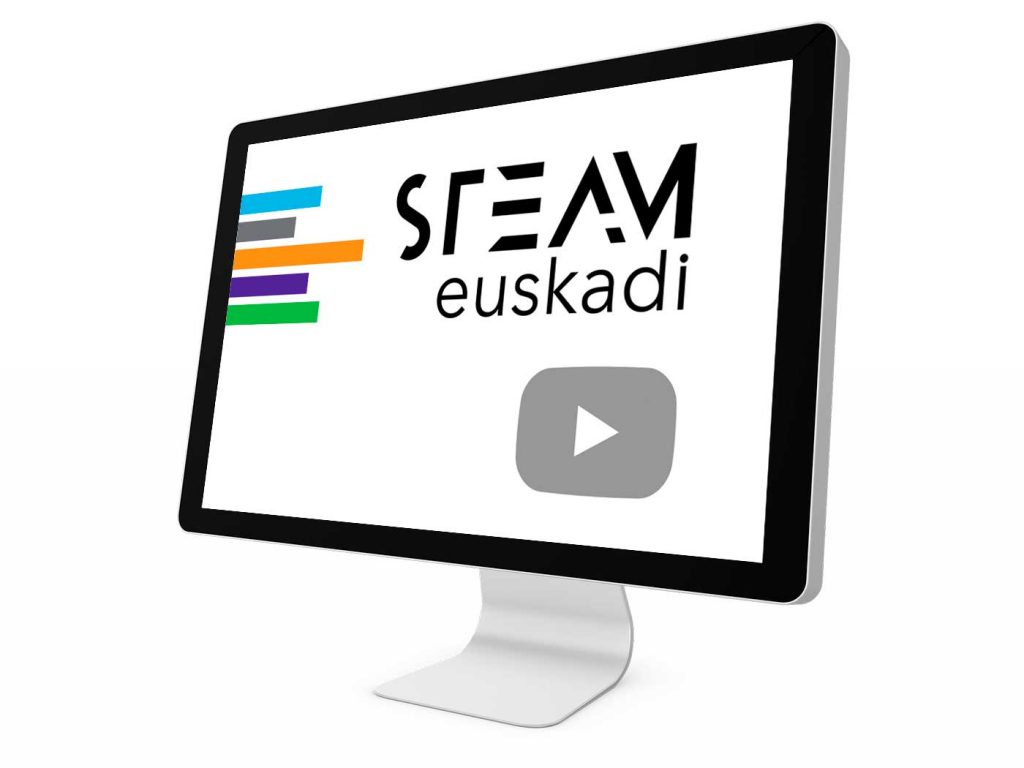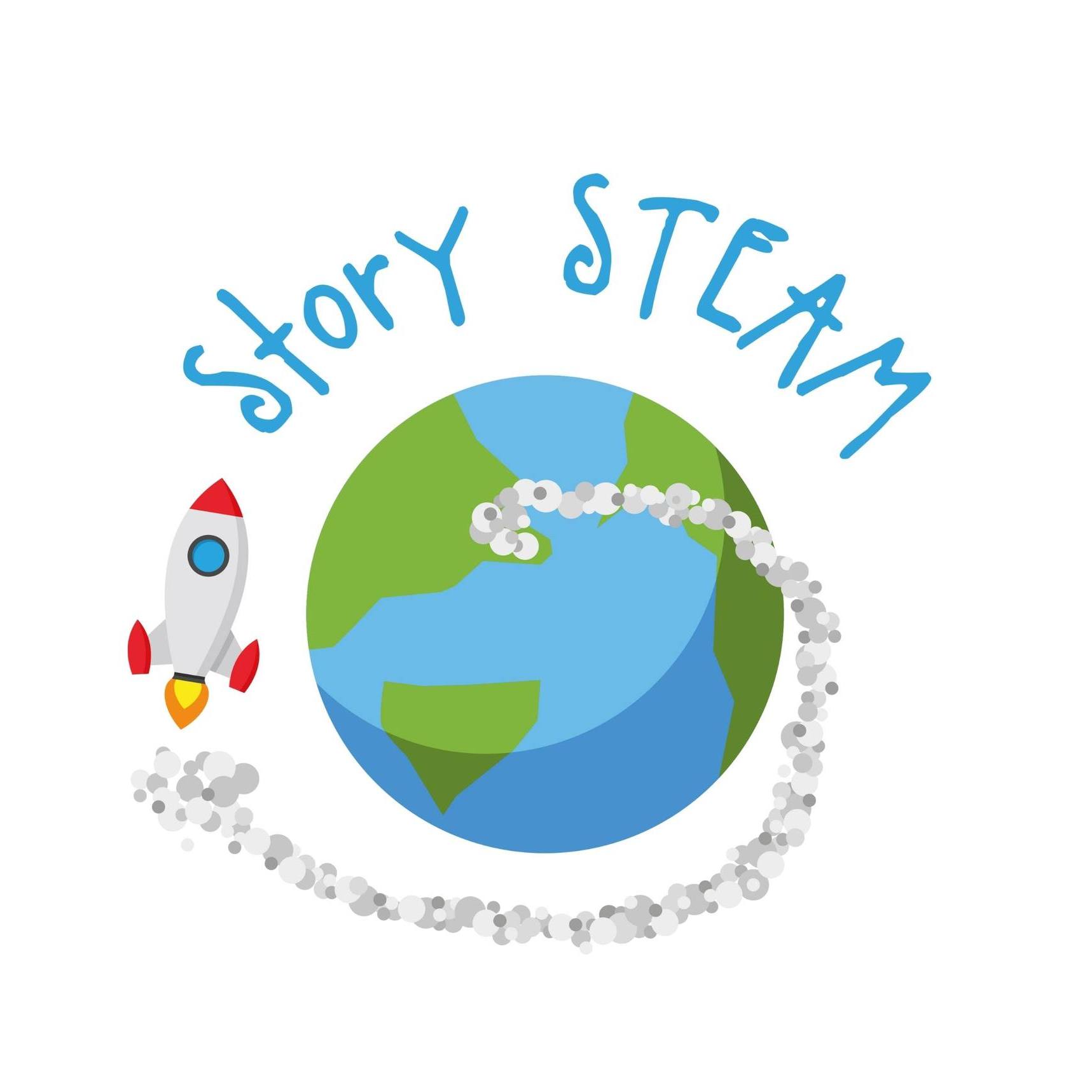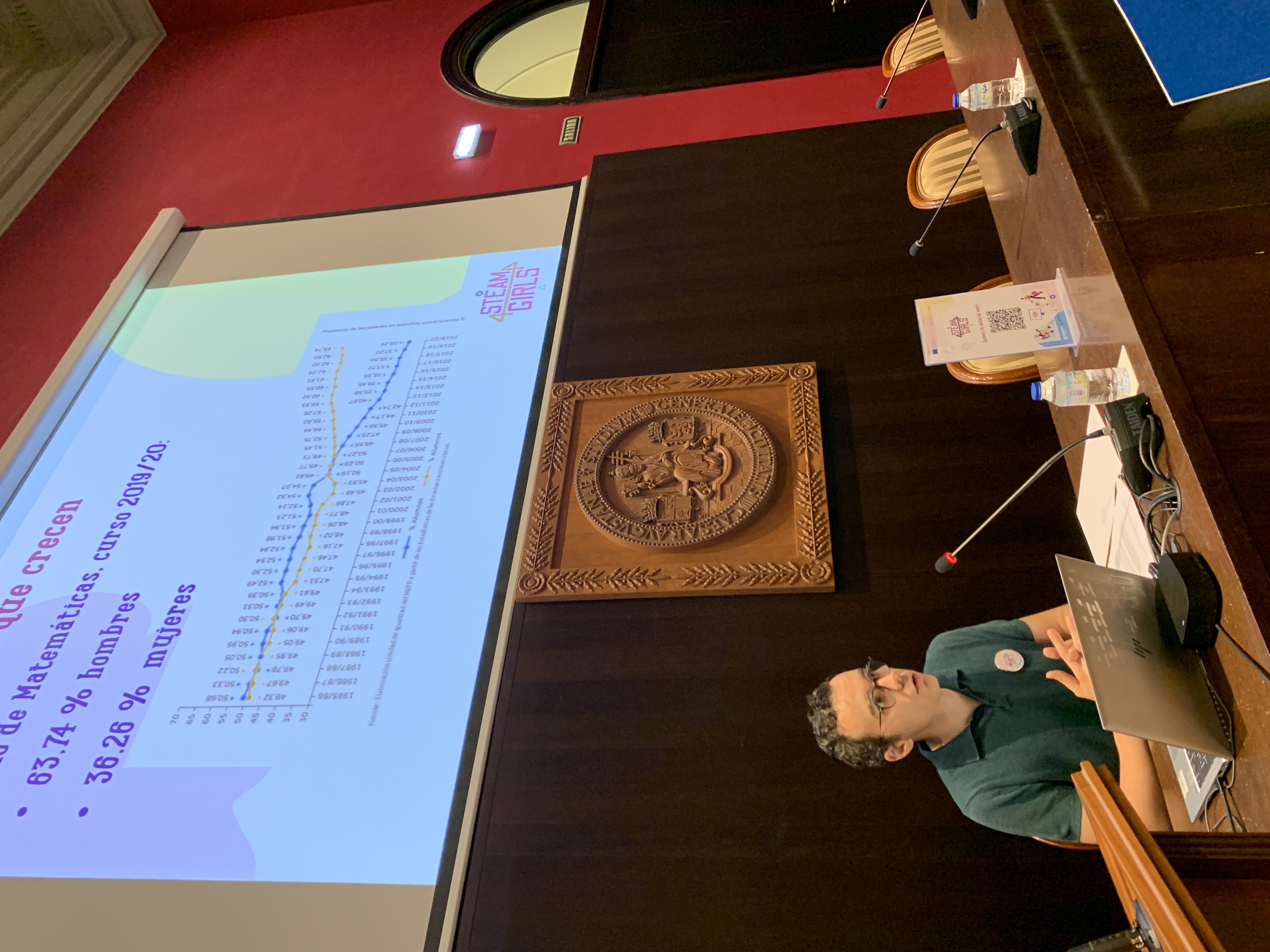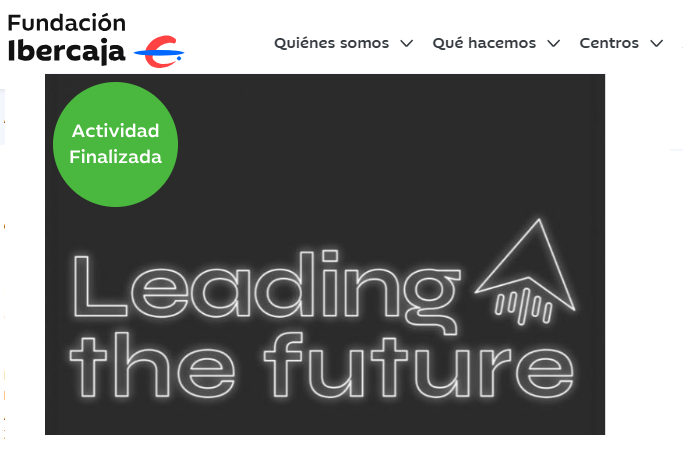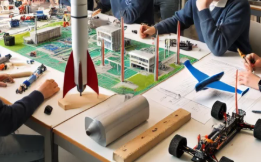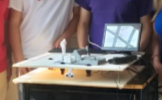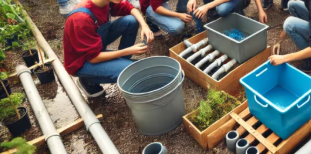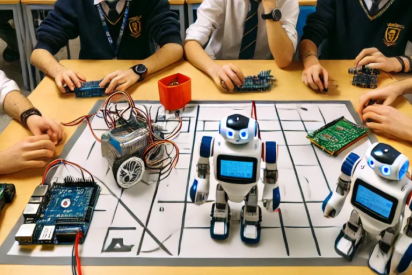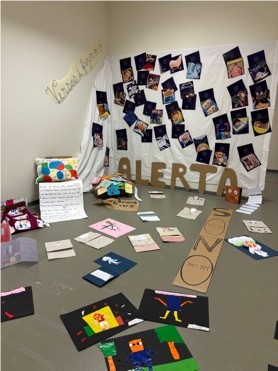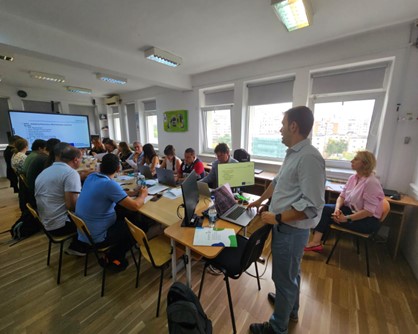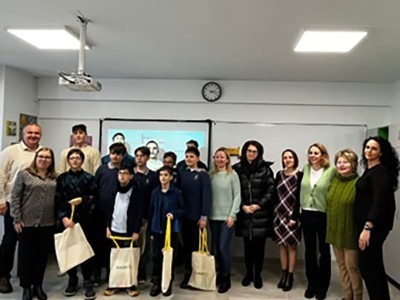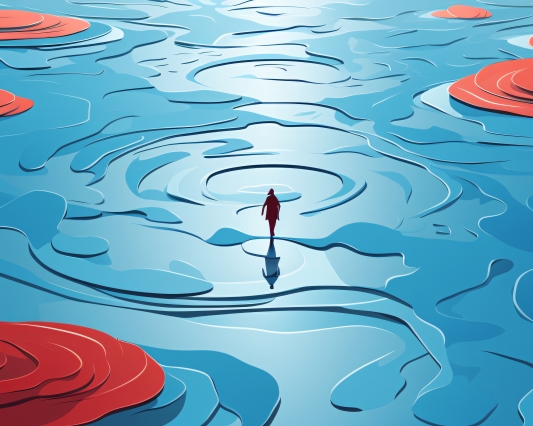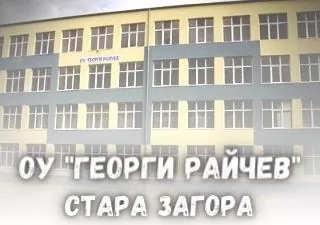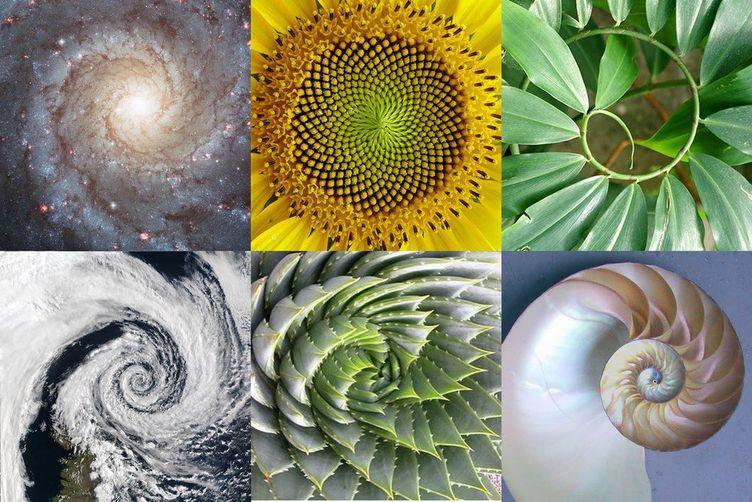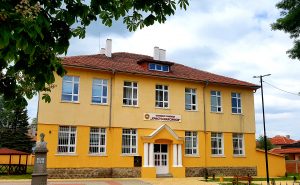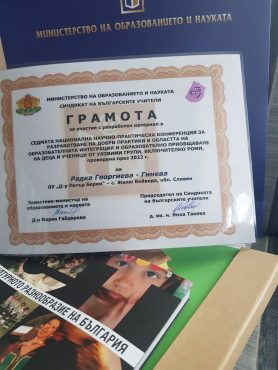Best Practices
A database of good practices to teach humanities by combining the use of coding and STEAM to learning design applied to digital education
The practice "Palavrândia" consisted of an interdisciplinary approach that integrated the areas of Languages, Mathematics, Science, Arts, Technology and Engineering, based on the STEAM methodology and the enhancement of interculturality. The activity began with the creation of the linguistic biographies of the students, from which an imaginary country was built — the Palavrândia. The practice involved data analysis, the use of digital tools such as Google Earth and Maps, the construction of symbolic border houses and culminated in an artistic exhibition with an intercultural boat decorated with words from different languages. Th ...
Humanities, Technologies\Engineering, Math, Civic education, Foreign Languages, Arts
The activity had tea as a unifying theme and involved scientific experiments on the tea infusion process and the influence of temperature on the speed of color change and intensity of the infusion, the creation of infusers with recycled materials, the making of paintings using tea as a pigment, the resolution of mathematical problems related to proportions and quantities, and the production of digital presentations on the tea production cycle. The project culminated with the holding of a "Tea Fair", in which students presented and shared their work and learning with the school community.
Humanities, Technologies\Engineering, Math, Natural Science, Civic education, Arts
This activity originated from the book Trocoscópio, by Bernardo Carvalho. It involved experiences with light, the construction of a kaleidoscope, cutting and assembling visual compositions with colorful geometric figures, and attribution of narrative meanings. Mathematical problems were solved with concepts of spatial orientation, seriation and counting. To end it, the students created free choreographies, expressing themselves bodily and artistically. Digital tools were used in the creation of patterns and visual sequences. The activity promoted creativity, empathy, expression, critical thinking and respect for cultural diversity.
Humanities, Technologies\Engineering, Math, Natural Science, Civic education, Foreign Languages, Arts
The Entrepreneurship Market activity is transdisciplinary practice that promotes positive reinforcement through a school currency system, the "Torga", a name inspired by the Portuguese poet, Miguel Torga, who gives his name to the institution. Students earn Torgas for good deeds, associated with positive behaviors (help, sharing, collaboration, social and environmental concerns...), accumulating coins throughout the year. The accumulated amounts are then used by students to invest in a business that they themselves create (goods or services) or to make investments and purchases in their colleagues' businesses. They promote marketing ...
Humanities, Technologies\Engineering, Math, Natural Science, Civic education, Arts
Mobility Camps are educational initiatives offering alternatives to traditional camps, focused on STEAM subjects and coding for children aged 6 to 12. Held in spaces of regional interest—such as the Mobility City Museum in Zaragoza—participants have the opportunity to experience STEAM education firsthand through real-life examples and interactive digital activities.
Humanities, Technologies\Engineering, Arts
The STEAM orientation sessions aim to inspire the next generation of professionals through events that connect relevant sectors with secondary school students. A key aspect of their development is highlighting the wide range of career paths and opportunities within the sector, while also engaging students with fun, hands-on activities.
Humanities, Technologies\Engineering, Math
STORY STEAM is an educational initiative that integrates the five STEAM disciplines into traditional learning, combining essential areas of knowledge through a variety of formats accessible to the entire community.
Humanities, Technologies\Engineering, Math, Arts
Steam4Girls was an educational project aimed at promoting vocations in STEAM subjects and coding, especially among girls aged 12 to 18. By equipping this group with digital skills, the gamified methodology sought to show that these fields are not only open to everyone, but also present great opportunities for learning.
Humanities, Technologies\Engineering, Math, Civic education, Arts
From February 6 to 8, 2025, the first congress in Spain dedicated to celebrating STEAM subjects and inspiring vocations in these areas—crucial for both the national and European economy—was held. With a variety of activities for audiences of all ages, the initiative brought together stakeholders from diverse sectors in a unique celebration of the importance of these fields of knowledge for society, offering co-creation spaces for everyone involved.
Technologies\Engineering, Math, Arts
The project introduced students to industrial automation systems through the use of PLCs and collaborative robots, providing them with practical skills in the field of automation and robotics.
Technologies\Engineering
The "Piazza Maggiore 360°" project engaged students in an interdisciplinary journey combining history, art, science, technology, and mathematics. Students created 3D models of Bologna’s Piazza Maggiore, integrated sensors to improve accessibility, and developed a website to share the project outcomes.
Humanities, Technologies\Engineering, Math, Natural Science, Arts
The project engaged students in the design and construction of a rainwater harvesting system to irrigate the school garden, using recycled materials. Activities included research, technical design, construction, and system maintenance, promoting environmental awareness and the development of sustainable engineering skills.
Technologies\Engineering, Natural Science, Civic education
The project created an exhibition pathway using augmented reality and 3D holograms, focusing on female figures from the local area who stood out in various fields. Students used digital content creation software, developing skills in technology, art, and communication.
Humanities, Technologies\Engineering, Foreign Languages, Arts
The project introduced students to building and programming robots using advanced kits such as Arduino and Raspberry Pi. Activities included participation in robotics competitions, enhancing skills in problem-solving and collaboration.
Humanities, Technologies\Engineering, Math, Natural Science
The activities carried out related to the topic quality sleeping and aimed at raising awareness of the importance of the quality sleeping in the overall development of children.
Humanities, Technologies\Engineering, Math, Natural Science, Civic education, Arts
eHERITAGE (‘Expanding the Research and Innovation Capacity in Cultural Heritage Virtual Reality Applications’) is a Coordination and Support project which addresses the “twinning” challenges described in the topic H2020-TWINN-2015 of the Work programme. eHERITAGE’s coordinating institution University Transilvania of Brasov (UTBv) will achieve excellence in the field of virtual heritage by twinning with other 2 research centers.
Given the high touristic potential of Brasov, UTBv’s initiative fits perfectly in the regional innovation strategy for economic growth and prosperity. eHERITAGE participants will collaborate with ...
Humanities, Technologies\Engineering, Foreign Languages
The RoboSteamsen project intends to understand disabled students needs and adapting robotics and active learning methodologies to their different disabilities in order to personalise their learning. The project main aim is addressed by:
Understanding disabled students needs and adapting robotics and active learning methodologies to their different disabilities;
Defining training programs for teachers so they can make adaptations to personalize the learning of students with IDD;
Developing a community of practice supported by a technological ecosystem to provide a meeting point for teachers and decision makers about how to succe ...
Technologies\Engineering, Natural Science, Arts
An Erasmus+ initiative aimed at integrating STEAM and coding into primary education while fostering creativity and international collaboration. The people involved were mainly primary school students, teachers, parents, international partner schools from Wales, Turkey, Portugal, and Bulgaria.
Humanities, Technologies\Engineering, Math, Foreign Languages, Arts
Primary students used Ozobot robots to learn programming, integrating coding with cultural and scientific topics.
Humanities, Technologies\Engineering, Math, Natural Science, Foreign Languages, Arts
The BIG GAME Erasmus+ Project represents a good practice example of how humanities education can be enriched through the creative integration of coding and STEAM within a digital learning framework. The project uses a cooperative, story-driven game to immerse students in multidisciplinary challenges that blend science, technology, engineering, arts, and mathematics with historical, ethical, and social themes. By co-creating game narratives and solving real-world inspired missions, students engage in critical thinking, storytelling, and collaborative problem-solving—core competencies in both humanities and STEM fields. The digital ...
Humanities, Technologies\Engineering, Math, Foreign Languages, Arts
The lesson “Into Unknown Waters” certainly has nothing to do with traditional education. It includes STEAM education. It turns the lesson into a fairy tale with its own plot, an interesting story about a problem that can be solved or an activity that can be developed. Learning occurs on the way to presenting a solution that sharpens the skills and develops the thinking of children.
By placing them in a problematic situation in which they are the main characters, and not just the audience, they show unprecedented creativity and ingenuity.
The lesson becomes an adventure, possessed by the mystique of the unknown. Each successful ...
Humanities, Technologies\Engineering, Math, Natural Science
The STEM lesson is about Technology and Entrepreneurship and includes elements from Man and Nature, Mathematics and Information Technology.
The lesson can be presented to both 3rd-grade students and those working with older students. Depending on the needs and wishes of the class, the idea can be adapted and executed accordingly.
For the work in the lesson, students are divided into small work teams and take on the role of engineers, architects or builders to create strong and durable structures.
Technologies\Engineering, Math, Civic education
Knowledge – to consolidate and generalize knowledge and skills in adding and subtracting numbers up to 1000; getting acquainted with an unfamiliar literary text and the image of Shisharko; determining the place of the fairy-tale character in a specific group of living organisms; describing the environment and living conditions of the character.
Practical: applying the positional principle for recording three-digit numbers in the decimal number system and using it in the actions of adding and subtracting numbers up to 1000; creating a fairy-tale character using the “Fibonacci Numbers”, assigning it to the organs of coniferous ...
Humanities, Technologies\Engineering, Math, Natural Science, Arts
Students independently build working models of the heart, lungs, and gallbladder, thus observing and drawing their own conclusions about the activities of important organs of the human body; to more clearly understand their significance.
Technologies\Engineering, Math, Natural Science, Civic education
The article presents a lesson from the innovative practice "IT Znayko" - "Playing and Learning - A Journey into Space"- implemented with students from grades 2, 3 and 4, whose mother tongue is different from Bulgarian. The goal is to arouse students' interest in Space, to develop their imagination and natural curiosity, as well as to stimulate their creativity, their ability to observe, to hypothesize and draw conclusions, to seek solutions, to make improvements and innovations and to develop their digital skills. In achieving the set goals, the STEAM approach and the innovative methods of "design thinking" and "learning through exp ...
Humanities, Technologies\Engineering, Math, Natural Science, Arts

